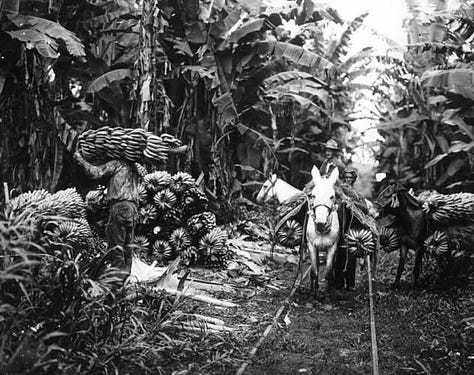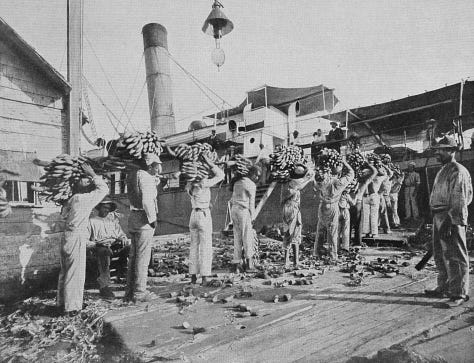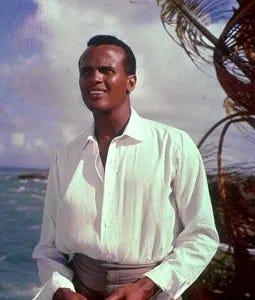Calypso Came Out of Colonial Oppression
"Day-O" is the Lament of a Banana Boat Worker Who Just Wants to Go Home
Harry Belafonte passed away yesterday (April 24, 2024). He was an artist and civil rights advocate who did a lot of good in the world. Quite a handsome devil, as well.
The Origin of Calypso Music
The Afro-Caribbean, “calypso” music he brought to the United States in the 1950s was born of colonial oppression, beautiful sounds erupting from bondage and misery. Like most of the best music of the Western Hemisphere, it comes from the diaspora of Africans in the slave trade.
Like hip-hop, rock, blues, reggae, zydeco, jazz, and most West-African-derived music, calypso rhythm features a syncopated beat subject to modification and improvisation. These forms evolved from West African bell patterns which, when mixed with local music, became the clave rhythm we associate with calypso and other Caribbean sounds.
Belafonte’s biggest hit is a traditional call-and-response of banana plantation workers at the end of a 14 hour shift. He calls out, “Come Mr. Talleyman tally me bananas,” because the banana workers can’t go home until the “tallyman” confirms he has met his quota.
The story of how bananas went from a diverse, local fruit in the rainforests of Central America to the uniform Cavendishes we buy at the store is fascinating. I recommend John Solouri’s award-winning Banana Cultures (2007) if you are interested. Suffice to say, the plantation workers had it rough.



The plantation workers faced not just brutal working conditions, but also political repression at the hands of the “Banana Republics” supporting the United Fruit Company.
Steel Drums Were A Secret Method of Communication
Although slavery was formally abolished in Trinidad and Tobago in 1837, British colonial authorities strictly enforced a ban on drums, as they (quite correctly) feared the rhythms were in fact a secret form of indigenous communication coordinating riots against their colonial masters.
The fledgling oil industry of the early 20th Century created a surplus of oil drums which locals fashioned into a new, legal instrument. The “steel pans” also had the virtue of being stronger than the bamboo-based drums and skins.
RIP Harry Belfonte.




